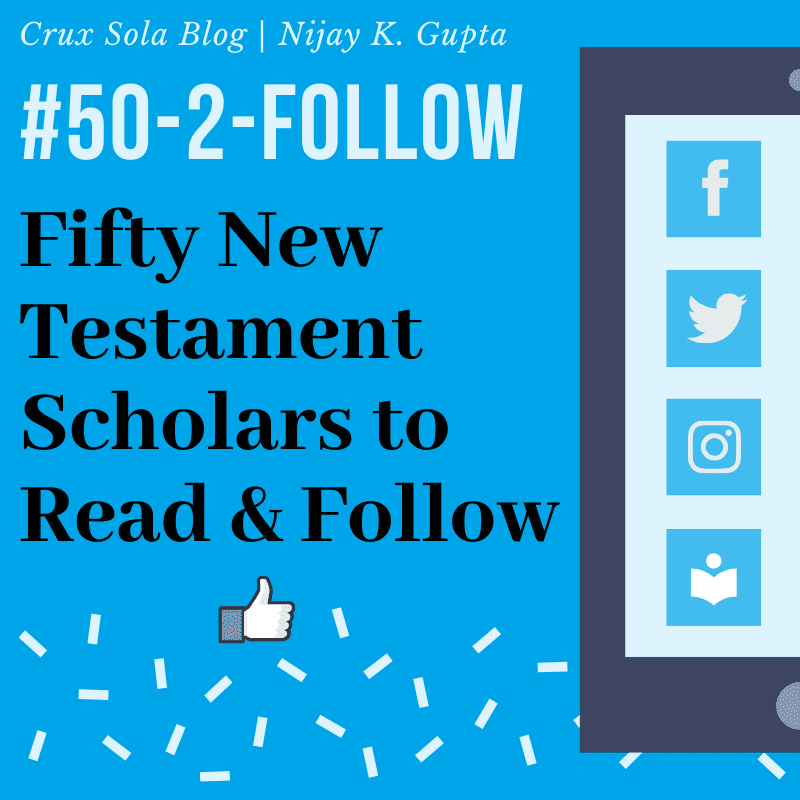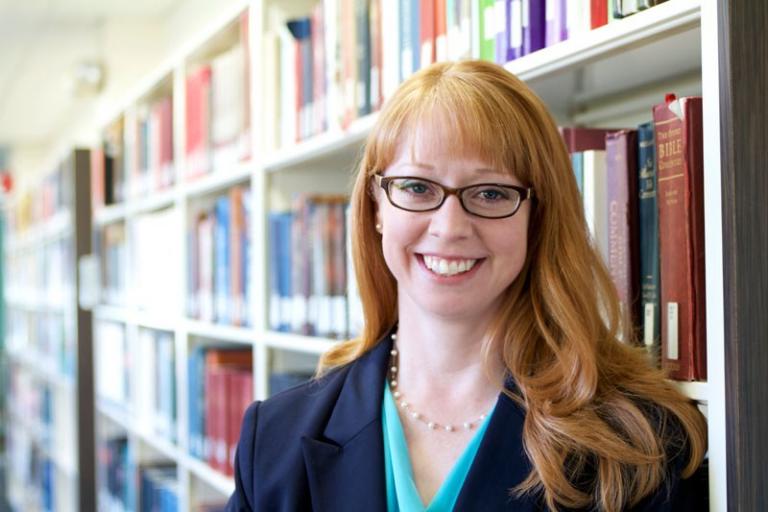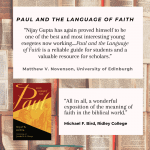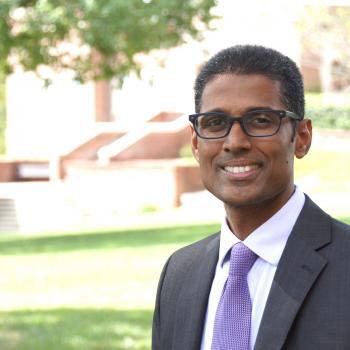This blog series spotlights 50 NT scholars and their research. The goal of this series is to introduce readers to a wider circle of scholarship than they have encountered. The majority of people on this list are early or mid-career NT scholars who are doing great research and writing.
Introducing
Carla Swafford Works
Professor of New Testament
Wesley Theological Seminary (Washington D.C.)
Explain why you love teaching and/or writing, and why it brings you vocational satisfaction.
I am addicted to the “aha” moments that occur in the classroom when the biblical text comes alive. We all bring baggage to the biblical text through our own reading lenses. Sometimes those reading lenses hinder us from wanting to engage the text. When we develop an awareness of those lenses, though, we have more freedom to examine the text and engage it in its multiple contexts. I have found that teaching Paul’s letters in particular has made me a better teacher. The majority of my students would like to avoid reading the apostle due to years of abuse within the church over (mis)interpretations of Paul. This classroom context gave birth to my book The Least of These: Paul and the Marginalized. Acknowledging our lenses can help us examine whether some of the interpretations that we have inherited are really warranted by reading the Bible in light of its own historical, social, cultural, and literary contexts. It is in these moments that I have seen “aha” moments occur. These moments are powerful and life-giving. I love being part of that.
What is one “big idea,” emphasis, or theme in your scholarship that you hope impacts the way students and scholars read and understand the NT?
The Bible is about God. I read the Bible as a testament to the many people of faith who have come before us. They are not perfect. They struggle. They falter. The Bible demonstrates multiple ways in which these people have tried to articulate what they believe God is doing in the world. Our human languages are limited. Our human ways of thinking are limited. The Bible reflects and preserves those limitations, but it also points to a greater reality of a Creator God who loves all creation and longs to bless that creation with life abundant.
Who is your academic hero and why?
Beverly Roberts Gaventa has gone above and beyond the role of mentor. Of course, I have learned much from her about Paul’s letters, but beyond that she has been generous with her time and her wisdom.
Name a few academic books that were formative for you as a student.
Lou Martyn—There is a piece on Flannery O’Connor and the power of grace in his Theological Issues in the Letters of Paul that I have read over and over again. It reminds me of the creativity of the interpretative task.
In his commentary on Galatians, he moves beyond deep scholarly engagement with the text and includes sections that help the text come alive within the first century world.
Anything by Walter Brueggemann, but especially The Prophetic Imagination. Brueggemann embodies the kind of scholarship that I feel called to do, scholarship for the church rooted in the academy. His work is accessible, and it matters.
Read Works’ Work
 The Least of These: Paul and the Marginalized (Eerdmans, 2020).
The Least of These: Paul and the Marginalized (Eerdmans, 2020).
Follow Works ONLINE
If you ran into me at SBL, and you didn’t want to talk about New Testament studies, what would you want to talk about?
Travel, powerlifting, DIY home projects, and SEC football (Woo Pig Sooie! Go Razorbacks!)
What is a research/writing project you are working on right now that you are excited about?
I am currently writing a commentary on 1 Corinthians, and after that I have another commentary project on the Thessalonian correspondence. These commentaries will, I hope, be useful to pastors and teachers within the church.





















